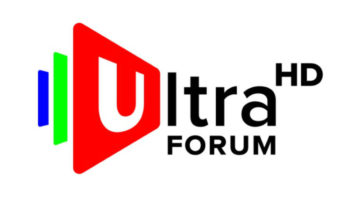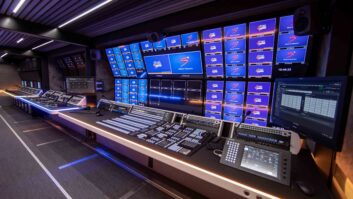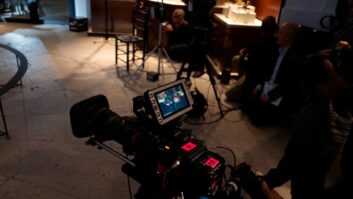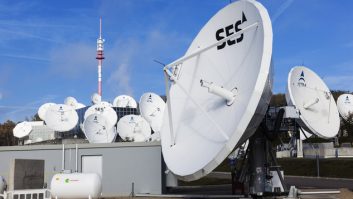As revealed at the recent HD Masters conference in London, the UK’s four terrestrial broadcasters start trial broadcasts of HD over digital terrestrial transmission this month – and if it is a success, it could help persuade regulators to release bandwidth for HDTV once the analogue signals are switched off, writes David Fox.
The trial is using H.264 compression, with transmissions mainly at 1080i and 1080p/25, although some film material will also be trialled at 720p/50. The broadcasters are also joining with cable company Telewest to provide HD via MPEG-2 for its HD service.
The trial will involve some 450 volunteers in the London area until September, and will examine: how well the encoders work; what the pictures look like at different bit rates and on different screen sizes, assessing what consumers like best; how the distribution and live links work; and the spectrum requirements.
The BBC will have one channel (31), while ITV, Channel 4 and Five will share another (27), broadcast from Crystal Palace.
The first task was finding spectrum for the trial, Arqiva’s Frank Brown, told delegates at the May 17 HD Masters conference, as five analogue channels and six DTT multiplexes take up almost all the allocated bandwidth. “Fitting the HD in was very difficult, especially as we wanted to be in the same channel band as existing services, so that the trialists didn’t have to fit new aerials.” It is also important that signals don’t spill over into surrounding areas, so the 2kW of transmitter power (using an emergency containerised, water-cooled 1kW NEC transmitter) is focused on central London – although one journalist has reportedly managed to view the signals outside the area this week using a home computer and decoding software (the signal is not encrypted). Thomson Grass Valley is providing two HD encoders and one SD encoder for the trial.
ITV will show its 32 live World Cup matches, and some repeats, in HD, plus programming from Granada’s HD collection (such as Poirot, All Quiet on the Western Front, and Space 1999). Five will provide at least two hours per week (from series it can get the rights to), while Channel 4 will provide series such as Lost and Desperate Housewives, plus movies.
The BBC will transmit the same programming as its satellite trial, including all of its World Cup matches, and series such as Planet Earth and Bleak House, plus mainstream programming upconverted from SD.
The BBC can’t turn the trial into a service, according to John Zubrzycki, BBC R&D, without permission from the regulator, Ofcom, which is “currently mulling over how to use the spectrum once the analogue switch off takes place,” and the new BBC Trust.
Channel 4’s CTO Kevin Burrows sees the biggest issues as being: how to deal with bandwidth, live programming, how the MPEG-4 encoders perform, transmission ruggedness (and how it interacts with the existing DTT channels), and what the pictures look like on consumer screens. “It’s really about focusing on the technical output,” he said at the HD Masters conference.
The encoders being used by ITV, C4 and Five don’t support Dolby Digital, so that channel may not have full surround sound initially, although the BBC’s HD channel will have where possible. ITV will use some SD material upconverted to HD (such as its live World Cup studio presentation), and Simon Fell, controller, emerging technologies, ITV, explained that getting rights to HD content for the trial was a problem for the three commercial broadcasters.
Transmissions will start at about 15 to 20 Mbps. By the end of the trial ITV Controller of Emerging Technologies Simon Fell hopes to see about 10Mbps, but that is difficult now with live encoding. As the bit rate falls, Fell believes that 720p compression will produce better results than 1080i.





